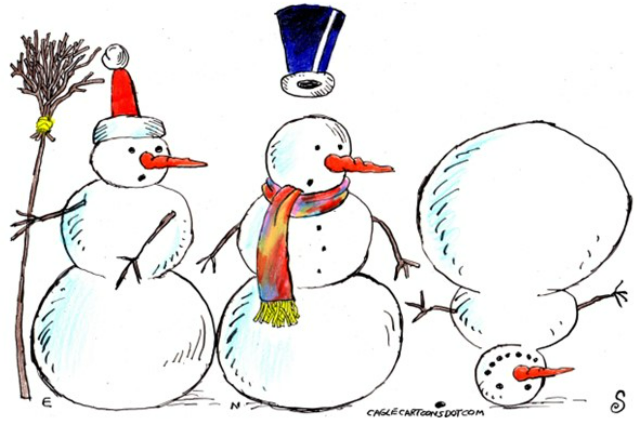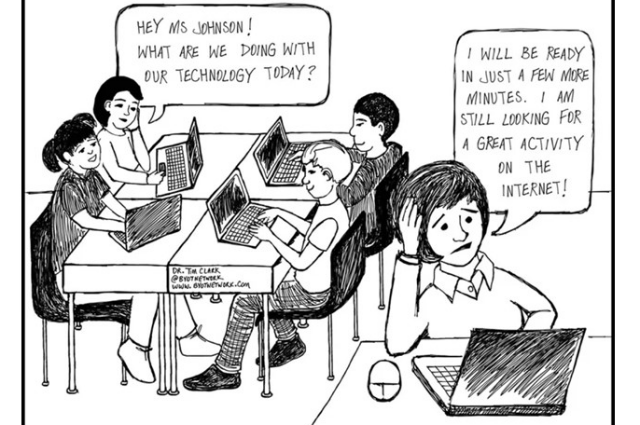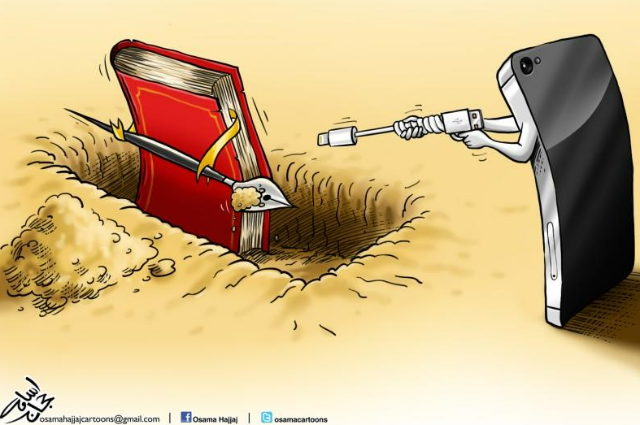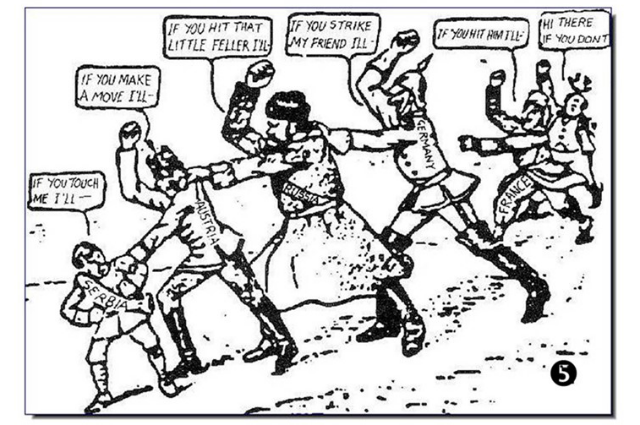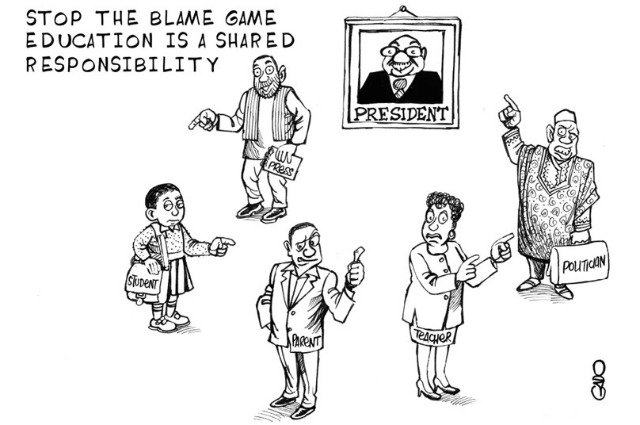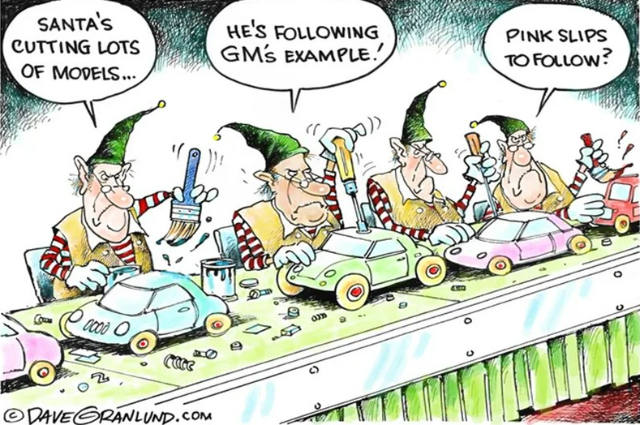
Image by www.progress-index.com
Before the seventh century, while the west was still mixed in awkward Roman numeral, India had equipped with numerals we use today. The symbolic letter Zero, dates to second century BC, but definitely appeared in 3rd century on a temple wall near Gwalior [1]. Our country’s contribution to mathematics were triggered by the inherent need to know, based on astronomical factors, where we embarked on a quest to find a time to fulfil Vedic ceremonies. Our culture to pray, to obey, and please an almighty lurking in and out of us brought us an understanding of the world we take for granted.
While the ancient civilizations equipped with little scientific knowledge and blunt view towards materialism, fastened themselves with curiosity and strict conformity, the nature of world they taught and contributed remained almost the same for generations to come. In his astounding book Sapiens, the author Yuval Harari says that- “History is something that very few people have been doing while everyone else was ploughing fields and carrying water buckets” [2]. The few minds that broke through the veil of narrow mindedness to find answers to fundamental questions were scrutinized and tormented leaving little inspiration for the thinkers to follow. Their education was limited to experience and experience was limited to their birthplace. Their birthplace was run was a ruler, a ruler with rules of his own, the rules thought with little consideration of literacy, literacy- a proficient commodity, limited to listed few.
The flow of information was cornered, humans were merely machines with memory measured by their produce. This changed once and for all when Galileo took his telescope and glanced at the unknown and incomprehensible starry sky lighting the spark for Scientific revolution which soon followed by the industrial revolution which got criticized by its own product called education. Well, to be honest, everything has changed to a certain extent but not the necessary things. As I began this paragraph, in term of now, the flow of information is diverging, but humans are still merely machines with memory measured by their productivity. If you aren’t meeting your deadline in an IT company in modern Bangalore like a potter did in Harappa civilization, you are screwed. If your day is filled with vacancy leaving little room for intellectual development, both at present and past, you aren’t going to sustain your family needs. The world has changed, and the change is not visible if we consider most of the human society. While monarch’s can be equated with a wealthy capitalist, the modern daily wage workers remain the same but with colorful clothes and comfy seats. The answer to the question, where does the flow of information is vanishing is about to
be answered. The answer isn’t easy, but not too difficult if we analyze the way we are taught and the way the internet is changing it.
The Paradigm Shift
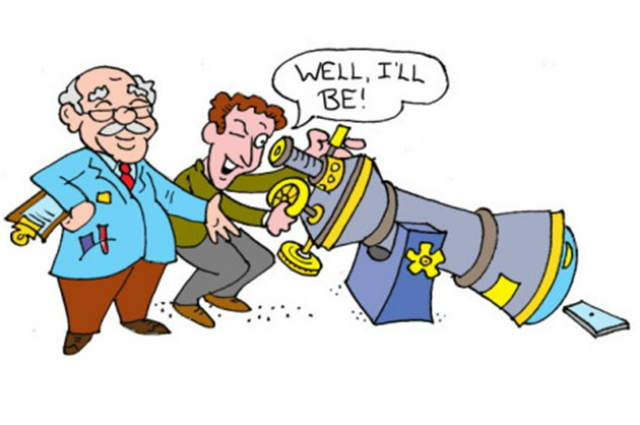
Image by plannersweb.com
For every opinion now accepted was once eccentric. - Bertrand Russell
When was the last time you heard the phrase ‘The Paradigm Shift’? The more I try to remember, it was last mentioned during Einstein’s General Theory of Relativity, when we completely decoded the human genome, when Marie Curie came across Radioactivity, during the time when Wright Brother’s flew for a minimal distance and somewhere around the place where an atom was split. If this were the case, the occurrences are very occasional and constricted to people choking their stringent mind to a particular part of scientific study. Its not the scenario where the world has run out of fresh scientific papers, according to a latest report by Phys.org [3] millions of research papers are published in a year. While numbers are piling up, the value they provide is under processed and underrated to be known by a layman. Here the question pops us instantaneously, have we run out of things to invent or discover?
To proceed with the question, I will have to break down the answer into two categories. One concerning invention and the other in relation to discovery. Let’s begin with invention.
Invention:
Invention is an act of producing a new thing, like a magician plucking a rabbit out of his hat. Not that the real magic is involved, but we get to be surprised by the act as it produces something we never expected. Mobile phone was an invention, airbag was an invention, and the condom was an invention too. March 7th, 1876, Alexander Graham Bell received a patent for his telephone [4] and it took around 97years [5] i,e 1973 for the first handheld mobile phone to circulate in the market. When the first mobile came out, nobody in the whole world, not even the most notable prediction guru did imagine a world with a rectangular device which can call a car and pay the money all the while entertaining the user with music from dead musicians from renaissance. What we are getting right now is updates and upgrades. We are featured animals with grand future but featherless to fly without new colors of invention. Our inventions today are market oriented than curiosity oriented. We want our product to change the marketplace than the human society. Necessity is the mother of invention, and the problem remains that we are no longer worried about our external needs due to busy schedule filled up with Instagram reels. Inventions are being made by scientific community- either by accident or by sheer research, but the layman is unbothered. The spirit to invent and explore is not in his list of activities he would do before he sets himself to eternal sleep. Aren’t we all inherent explorers? Is it not us, who took a deep breath and a leap of heart to cross oceans to cultivate unforeseen lands? Where did this billion-dollar quality disappear? Are we bored with our lives? Should we blame the education system here? Well, the answer to most of these questions is partially yes.
Looking at the impactful inventions that happened in 21st century, its clear that most of them- almost all of them, are concerned with entertainment and communication. Social Media, touchscreen, Augmented reality, virtual reality, 3d printing, blockchain etc. [6]. None of these inventions are nowhere near to fundamentals that govern our lives like infrastructure, food, energy, and shelter. To invent something new, we need discoveries, and we are lacking at it because of the way we are being educated leading us towards the second part of the answer.
Discovery:
Discovery begins with wonder, as opposed to invention that tries to solve a practical problem. The world has never shied to expose itself to critical minds that ask the right questions. When Newton discovered gravity, it was thought that the universe could be explained with his formulas. When Einstein bomb shelled Newtonian limitations, he was hailed as the last emperor to solve the mystery of cosmic bodies. The announcement of quantum world put in a new starting point where we are still wondering around trying to find clues to a better understanding. The acceptance of ignorance and the lack of grand picture is not just limited to physics, because when we look at biology, it began with a monk trying to experiment with peas and ended up at CRISPR [7] where we are artificially manipulating a DNA into producing better species.
Why is it that there being very few people among billions of humans-dead or alive, who were able to discover something profound? They live in the same world, breathe the same oxygen, eat onions from the same soil and are equipped with the books we all have. The answer begins at the root level. The way we are being taught about the world at the schools and colleges.
When you first stepped inside the classroom, you were taught with English alphabets. You were made to remember them and repeat it again and again until your tongue craved for water. After a certain period, you were promoted to learn the words that began with the alphabets. If I were to ask you a simple question, what ‘A’ stands for? The immediate reply would be ‘Apple’ or maybe ‘Airplane’, It would be very rare if someone were to say ‘Avocado’. We were limited with our ability to think far from common perception of everyday things. Our brain is made to learn and behave in a certain pattern and you yourself would be astonished to hear someone spell ‘Astonished’ for letter A.
It would be a folly to announce that the education system is unbuilt and incompetent. When we look at our books, our teachers, and the way the facility is designed, it is hard to ignore the fact that it specifically deals with an average kid not with an intelligent one or below average one. The system believes that the average kid would be taught the way he is, while trying to pick up a below average ones all the while the intelligent should find his way around the normality. Every time there’s an exam in class, the class topper is sure to feel proud about himself/herself instead of relieving the fact that he/she is not competing with those worthy of competing. This fallacy sets the downward spiral for his/her growth. The teachers aren’t encouraged to go to an extra mile in guiding the intelligence- sometimes they themselves are ineligible, the parents are satisfied, and the kid grows more appreciative of the system where he is always winning.
The fact-based learning is again a true drawback of our learning system. We are being educated with some predefined data instead of being educated with critical thinking. We can define every school kid as a memory card- that remembers and recites, than compare him/her to a processor- that thinks and makes real time decisions. Oftentimes, the kid knows that the dog barks, but not, why does the dog bark? Asking these fundamental questions is the way towards true enlightenment. Discoveries are made this way- by asking simple questions and wondering what make a thing a thing.
Non-Conformity:
“If they give you ruled paper, write the other way.” - Juan Ramón Jiménez
Beside pursuing fundamentals of nature, the ability to break the expectations of traditions is an important job for a student leading to true discoveries. Students all around the world study under fear than curiosity. They are worried about the bad temper of their teacher who would lessen their grade thus hindering their neurons from sprouting out questions of new kind. We are social beings, our comfort lies in cooperating, thus we always try to avoid conflicts and this biological stimulus is being captured by our mental ability into making us into conformists. Picasso’s paintings are one of the ways where we can recognize the power of non-conformity and the impact it would bear on the culture of art. He painted not as his predecessors, but the way he feels. “Painting is a blind man’s profession. He paints not what he sees, but what he feels, what he tells himself about what he has seen”[8]. This quote can very well expose the power of original thought. The very moment he says that ‘painting is a blind man’s profession’, it clearly sucks away all the preconceptions we had about art. Who would even imagine something like that? When I talk about Picasso and his painting, one thing I would never do is compare him with Leonardo Da Vince or Michelangelo because Picasso is in the league of his own. The very notion that there’s no one like him marks his uniqueness and non-conformity showing us that rules are just imaginary cage.
So, what is the way around the dilemma of conformity? The answer begins at the Einstein’s quote, “imagination is important than knowledge”. Learn to agree to disagree and see what it does to our brain. Our brain is malleable, and it becomes what we feed it with. “I think therefore I am” said Rene Descartes, so let us try to separate ourselves from the crowd by our unique thought. We might turn out to be crazy, mad, and unconventional, but that’s what will make us proud if we really believe in ourselves.
The world is changing, information is getting multifaceted and the more we transfer ourselves from traditional books to internet culminated with colorful pictures and breathtaking animation, a child’s imagination is glittered. So, it is worth considering understanding the difference between traditional mode of education in relation with digital revolution.
The New Wave of Learning
To educate a man in mind and not in morals is to educate a menace to society. - Theodore Roosevelt
The combination of better products and new products makes it almost impossible to track material well-being across the decades and centuries. When an important good becomes plentiful, it costs far less than what people are willing to pay for it. The availability of efficient smart devices and services has lost us in making good choices over important things all the while forcing us to spend more time thinking of trivial things like color of our shirt, the smell of daily perfume and our next TV show. But the way the education sector is headed, the trend stands against the tide. The Indian education has seen an increased investment rate since the beginning of 21st century. School education budget seen a significant increase of 16.5 percent and higher education by 8 percent [9]. The goal of this budget allotment is meant to reduce a common man’s expenditure but the way the world works is compiled of uncertainties we can only imagine. In Urban areas, the average cost of professional courses in Rs. 64,763 while in rural areas, the cost is Rs 32,127 which is half the urban cost [10]. When we look at the overall picture in terms of an average parent, the cost of raising a child in India is incredibly unprecedented. School costs around 30 lakhs and college a crore says a report from Economic times[11]. This inflation in educational sector is one of the noteworthy causes leading to stabilized population. Educated parents are shying away from having kids and are adamant to accept the weight they must carry in this modern world with extreme competition.
When you buy an iPhone from online marketplaces like Amazon and Flipkart as opposed to an I-store, its more than probable that you would be getting better discounts and credits. When you ask for a prescription from doctors online, the cheaper the service and lesser the waiting time. Bus tickets when booked online comes with better discounts than live ones. If you can follow the trend, it’s evident that the internet is democratizing the choices and availability. Is it true with education? Does the platforms like Byjus, Vedantu, Unacademy worth their price offerings? How effective are they in comparison with live classes with real teachers holding chalk piece? Let’s find out.
Paper Vs LED
Digital friendship doesn’t provide the psychological benefits of face-to-face contact - Steven Pinker
Let’s consider this scenario for a moment. If there were no Covid-19 pandemic, would you- being a parent or a student, ever consider online school? When I asked my own family about it, they replied with a strict NO. Arriving at a conclusion at this immediate answer would be wrong as it would depend on each personality. Introverts prefer online while extroverts stand against it. People at extreme ends on the earth prefer online against those in near urban areas. But I can only guess that the more of human beings would prefer live offline classes over online. Debating over the better mode of teaching is very easy, but that is not the concern of this article. What matters the most is what is being taught and how is it impressed inside the mind of a child.
Pandemic has led us towards the mode of life we are taking without surprise. We are used to LED screens like used to do with Television. The very moment the word ‘online’ pops us, I remember the term democracy, capitalism, and competition. Decades ago, there was no concept of police whose work was cornered to invisible virtual world- the world without breath but full of heartbeats trying to find money, love, and purpose. Democracy when married with capitalism promotes consumer culture stating, ‘customer is always right,’ bringing new layer of comfort to a layman with competition. YouTube is a free service where we can learn almost anything, from the way the cloth is sewn to steps to build a bomb. Collecting the drawbacks of this platform- one way conversation, many educational platforms are paving their way to revolutionize the education.
Going back to my previous argument regarding fact-based learning, lack of discovery and conformity, there is no new methods the online platforms use that tackles with these problems. All they care about is gaining new customers with better results from the present ones. As of March 2022, Byju’s hit 150 million users, up from 80 million it reached earlier 2021 says a report [12]. The way the animations are created and deployed are far superior compared to a teacher with his stories in a classroom. The trend may seem incredible and no wonder that it would get normalized. People adopt to changes in their fortunes- mostly in fear of missing out, and quickly return to a genetically determined baseline. FOMO also promotes a shift in happiness factors as happiness is determined by how well people think they are doing, relative to their compatriots. Parents are conservative about their child, and they don’t want to be left behind making themselves vulnerable to marketing tricks.
Online learning platforms still function like after-school tuitions. Unless they are real schools- which they might turn out to becoming after years with continuous lobbying, the change in subject and the shift in mindset of a kid would most probably remain the same. Most probably! Change in the way one thinks is far more complex to predict than predicting the deaths due to obesity in next decade- it will increase. If the internet exists, we are delivered with better options in terms of money, quality of the animation and slang of the teacher. The things we should mind before using them is not to consider what price we are paying financially, but to consider the difference it would bring in a child’s thinking facility. Marks are thing of the past. With presence of AI tools like ChatGPT, just winning in exams with flying colors would be like being happy after getting drunk than experiencing reality by becoming sober.
Schools do have their meaning. A place where kids learn, plays, and grows with other kids. Uniforms make them similar, same text make them think similar, a bad teacher treats them similar and the system- unless it redefines itself would dump the similar citizens forever.
Technological Paradox of the past, present and the future.
War is Peace, Freedom is Slavery and Ignorance is Strength. - George Orwell
The progress in science and technology we are so proud of wouldn’t be possible without the two major World Wars. We preferred to put the best use of our education to hunt and kill someone than to enrich ourselves. Blood banks, Sanitary pads, Stainless steel, Ammonia, drones are all product of World Wars. The argument can be made stating that ‘we are intellectually triggered when it comes to war and ‘war is peace’ is what is being taught to us by our education system’. Valuing one’s country is good but believing one’s country to be far better than others is treacherous. If a school teaches us to uphold ourselves over others, then it is broken. Evidently, it is not the case in India or any developed or developing country. When it comes to extreme states it is a strong contender of democracy. The Nazis were indoctrinated, the Taliban are delusional and the dictators who believe in isolated triumph are mad. The more we focus on nationality, religion and alienating beliefs, the adamant we would be to be liberated from bad education. This behavior of self-superiority might get diluted every day, but to press it under the ground and bury it forever, I have an idea.
To make everyone study Astronomy. Here’s why?
When we learn about the universe made up of planets, stars, meteors, black holes, galaxies, solar flares, supernovas, magnetic waves, the possibility of alien existence, the effort it took to advance ourselves with satellites and voyager that is still travelling might make us think of our insignificance. When we realize that we are insignificant, we automatically become kind towards strangers. Even the greatest religions around the world preach the only thing- to be kind. Dharma in Hinduism means Kindness, Noah built an ARK to save all the animals, which was a metaphor into telling us to do an Act of Random Kindness, Islam never asked anyone to kill others, Buddhism relocates our mind to observe reality and to be kind with ourselves. We are going to die, so instead of learning what everyone has already written, it would be better to learn what we discover and invent. To sum it up.
The whole purpose of education is to turn mirrors into windows - Sydney J Harris.
The Conclusion:
Her name was Puttamma and her two sons were Hucchappa and the younger one Kumar. Her husband was a shepherd who once leaving the house with flock of sheep would arrive after a minimum of six months. His arrival was always uncertain. Many shepherds- once on the road, were under direct threat of snakes, wolves and thunderstorms and the risk wasn’t worth it. Except for sheeps and a small hut, they had nothing of their own. Huccappa leant in a government school where my father was his social-science teacher. His brother never bothered about studying and soon joined his father to rear sheeps all around the year. Earning money from laboring and construction work Hucchappa funded his education. The road wasn’t smooth, his mother fell sick and he couldn’t attend his 10th exam for two years. When hope was lost and life had a wrong turn, my father had helped him fill his 10th fees. He passed and his daily struggles continued and a few weeks ago, when I visited my hometown I was wonderstruck. Instead of a hut, there was a small building. Huccappa is now serving in Indian Railways. He is married and has a girl child called Mayna. His mother is taking her daily medication recovering from ulcers- which were caused by extreme fasting.
Education brings a positive change in one’s life. It can lift a man out of poverty, give new ideas to invigorate humanity, ask us to respect each other and live a satisfied life. If the role of education is specially meant to provide a job and help him recover his investment, then we are absolutely wrong. Education must educate not entitle. If a poor man like Huccappa can help himself with education, it is a noteworthy achievement, but if it is limited to its ability and not expand the horizons of a financially well-being man, it’s worth considering investigating our system.
Evidence of all those who benefited from Education are evident in all our lives and evidence of all those who are benefitting the surrounding with education are least evident. If we aren’t empowering ourselves and others but becoming fact-bearers, we must make a choice- to follow or to set an example.
“The unexamined life is not worth living.” - Socrates
. . .
Sources:
- Seife, Charles. Zero: The Biography of a Dangerous Idea. Penguin Books, 2000
- Harari, Yuval Noah. Sapiens: A Brief History of Humankind. HarperCollins, 2014.
- https://phys.org/news/2022
- https://www.history.com
- https://georgiasouthern.libguides.com
- https://www.thoughtco.com/the-most-important-inventions
- https://crisprtx.com/gene-editing
- https://www.goodreads.com/author/quotes/3253.Pablo_Picasso
- https://prsindia.org/files/budget/budget_parliament
- https://economictimes.indiatimes.com
- https://economictimes.indiatimes.com/industry
- https://mobilemarketingreads.com/byjus-revenue

